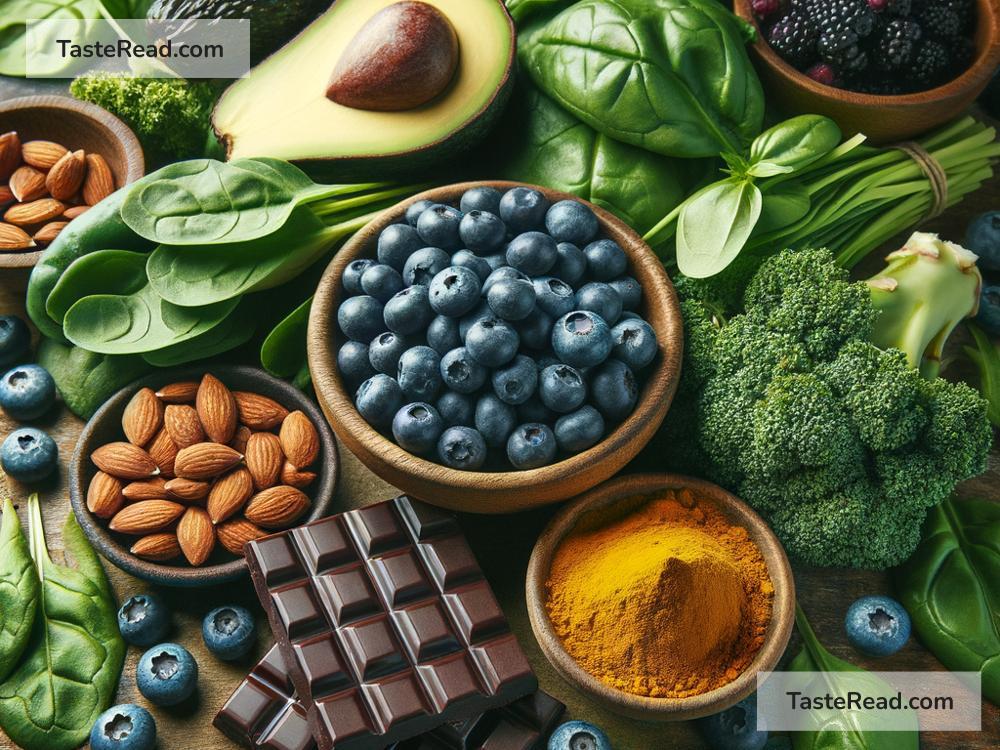Foods That Reduce Free Radical Damage: Eating Your Way to Better Health
In recent years, the term “free radicals” has been getting a lot of attention. You might have heard about them in conversations about aging, diseases, or even skincare. But what exactly are free radicals, and why should we care about them? Most importantly, can the foods we eat help reduce their harmful effects? The answer is a big YES. In this article, we’ll explore what free radicals are, why they’re harmful, and introduce you to foods that help fight them in simple and easy-to-understand language.
What Are Free Radicals?
Free radicals are unstable molecules that are naturally formed in your body during processes like metabolism (when your body converts food into energy). Your environment plays a role too—pollution, cigarette smoke, UV rays, and toxins can all create free radicals.
While free radicals aren’t entirely bad (they help fight germs and infections in small amounts), problems arise when there are too many of them. This condition is called “oxidative stress.” Essentially, free radicals steal electrons from healthy cells in your body, damaging them in the process. Over time, oxidative stress can lead to inflammation, premature aging, and serious diseases like cancer, heart issues, and Alzheimer’s.
Enter Antioxidants: The Free Radical Fighters
Antioxidants are molecules that can stop free radicals in their tracks. They’re like your body’s defense squad—donating electrons to free radicals without getting damaged themselves. This stabilizes the free radicals and prevents harm to your healthy cells.
The good news? Antioxidants are abundant in many everyday foods. Including these foods in your diet can help your body reduce free radical damage. Below, we’ll look at some of the best options to keep you healthy and thriving.
Top Foods to Reduce Free Radical Damage
1. Berries
Berries like blueberries, strawberries, raspberries, and blackberries are packed with antioxidants like vitamin C and flavonoids. These compounds help combat oxidative stress and inflammation. Studies show that incorporating berries into your diet can even improve brain health and protect against age-related diseases.
Pro Tip: Add a handful of berries to your morning oatmeal, yogurt, or smoothie for a delicious dose of antioxidant power.
2. Leafy Greens
Spinach, kale, Swiss chard, and other leafy greens are rich in antioxidants like beta-carotene, lutein, and zeaxanthin. These powerful compounds help protect your cells, especially in your eyes, from oxidative damage caused by free radicals.
Pro Tip: Use leafy greens in salads, soup, or sauté them as a side dish. The more variety, the better!
3. Nuts and Seeds
Almonds, walnuts, sunflower seeds, and chia seeds provide vitamin E, an antioxidant that fights free radicals and supports healthy skin and hair. The fats in nuts and seeds also help your body absorb other antioxidants.
Pro Tip: Snack on a handful of nuts instead of chips, or sprinkle seeds on your salads or smoothies. Moderation is key because nuts are calorie-dense.
4. Citrus Fruits
Oranges, lemons, grapefruits, limes, and other citrus fruits are loaded with vitamin C, one of the most well-known antioxidants. Vitamin C not only neutralizes free radicals but also boosts your immune system.
Pro Tip: Squeeze fresh lemon into your water or tea, or start your day with a refreshing orange for an antioxidant-packed treat.
5. Tomatoes
Tomatoes are a fantastic source of lycopene, a powerful antioxidant that fights free radicals. Lycopene has been linked to lower risks of heart disease and certain types of cancer.
Pro Tip: Cooked tomatoes (like in sauces or soups) increase the bioavailability of lycopene. Pair them with healthy fats like olive oil for maximum absorption.
6. Green Tea
Green tea contains catechins, antioxidants that help reduce inflammation and combat oxidative stress. Drinking green tea regularly can support your brain, heart, and overall health.
Pro Tip: Swap your afternoon coffee for a cup of green tea to reap its benefits and stay hydrated.
7. Dark Chocolate
Good news for chocolate lovers! Dark chocolate (with at least 70% cocoa) is loaded with flavonoids, antioxidants that improve blood flow, reduce inflammation, and protect cells from free radical damage.
Pro Tip: Stick to small portions to keep your sugar intake low while enjoying this tasty treat.
8. Garlic and Onions
Both garlic and onions contain sulfur compounds and antioxidants that lower inflammation and support your immune system. These kitchen staples are not only flavorful but also great for protecting your cells.
Pro Tip: Add them to soups, stir-fries, or roasted vegetables to enhance the flavor and antioxidant benefit of your meals.
9. Whole Grains
Whole grains like oats, quinoa, and brown rice are rich in compounds like selenium, which acts as an antioxidant protecting your body from free radicals and supporting cell repair.
Pro Tip: Switch out refined grains like white rice and white bread for whole grain versions whenever possible.
10. Colorful Vegetables
Vegetables like carrots, sweet potatoes, red peppers, and broccoli are full of beta-carotene, vitamin C, and other antioxidants that fight oxidative stress. The brighter the color of the vegetable, the richer it is in antioxidants.
Pro Tip: Steam, roast, or grill your veggies for a nutrient-packed side dish.
Final Thoughts
Free radicals can cause harm over time, but the good news is that you can fight back with the food you eat every day. Antioxidant-rich foods like berries, leafy greens, nuts, citrus fruits, tomatoes, and green tea are simple, natural ways to protect your cells and support your overall health.
The key is variety—try to include different types of antioxidant-rich foods in your meals for a well-rounded diet. Pair these with whole grains, lean proteins, and plenty of water, and you’ll be well on your way to reducing free radical damage and living a healthier, happier life.
So next time you’re at the grocery store, grab some vibrant fruits, colorful veggies, and wholesome snacks to fill your plate with foods that truly love your body! It’s always a good idea to eat for health, one bite at a time.


